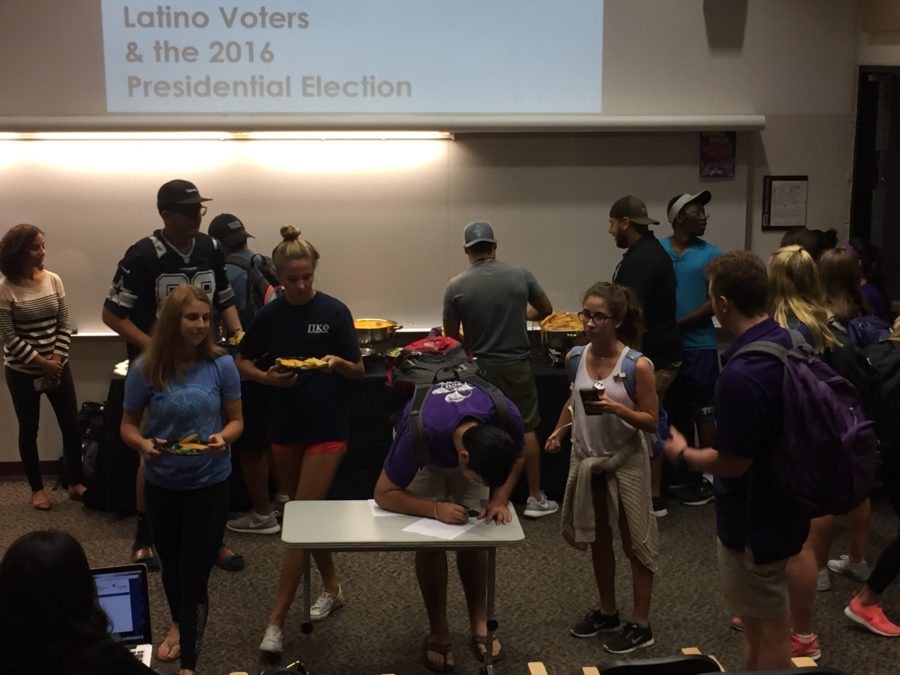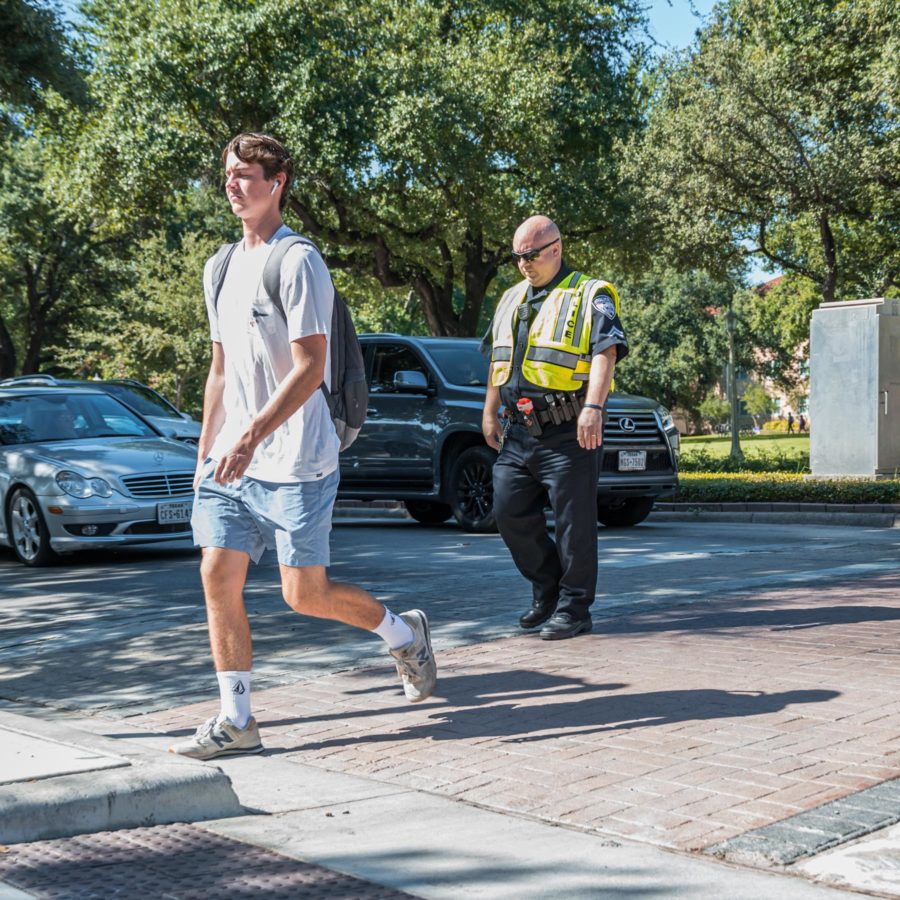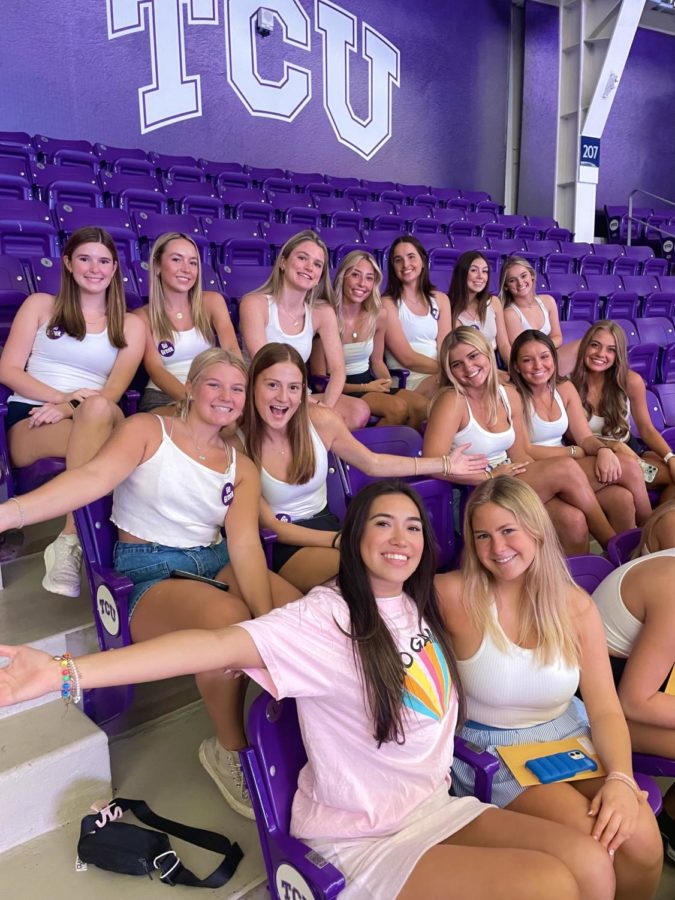The United Latino Association hosted a lectured discussion on Tuesday about the roles and issues Latino voters are considering in the 2016 Presidential Election.
ULA and Chi Upsilon Sigma, TCU’s Hispanic sorority, had assistant political science professor Dr. Emily Farris teach the attendees about the significance of the Hispanic and Latin American vote in this year’s Presidential Election.
Dr. Farris teaches American politics. Her recent research has been on Latino and political behavior, asking questions about political involvement with traditionally marginalized groups in the U.S.
The lecture began with a story about the “Great Tamale Incident,” when President Gerald Ford ate a tamale without removing the husk of the traditional Mexican dish.
This story began Farris’ general discussion about how some politicians, even to this day, are not aware of Latino culture.
“We still see this kind of mistaken outreach to Latinos today,” Farris said before presenting the most recent example of mistaken outreach with Donald Trump’s Cinco De Mayo tweet:
Happy #CincoDeMayo! The best taco bowls are made in Trump Tower Grill. I love Hispanics! https://t.co/ufoTeQd8yA pic.twitter.com/k01Mc6CuDI
— Donald J. Trump (@realDonaldTrump) May 5, 2016
Farris then began to discuss a common practice between both parties: “Hispandering.”
According to linguist Ben Zimmer and Duke University Press’ Charles Carson, “Hispandering” is the “political pandering by elected officials or candidates seeking to win over Hispanic votes.”
Democratic nominee Hillary Clinton has also been accused of “Hispandering” after the launch of her web page “7 Things Hillary Clinton has in common with your ‘abuela.'” This inspired the #NotMyAbuela tweets from people who did not see any similarities with Clinton and mocked her attempts of doing so:
Farris said that some politicians seem to not understand Latino and Hispanic culture.
“They may have gotten the memo that Latino voters are important, but they still haven’t yet understood the cultural nuances of what Latinos are interested in,” Farris said.
According to the U.S. Census Bureau, the population of Latino Americans was only at 6 percent compared to other ethnic groups. As of 2010, that number has increased by 10 percent, meaning that almost one-fifth of Americans considered themselves to be Latino or Hispanic.
So, what does this mean for this year’s election? The Pew Research Center said since 1960, America’s Latino population has increased nearly ninefold.
Even though they keep growing in numbers, the Pew Research Center said the number of eligible voters is increasing faster than the number of Latinos actually voting.
Despite the trend of Latino voters voting for Democrats and Clinton maintaining a 50-point lead among Latinos, a Pew Research poll showed Latinos began to lose their satisfaction with the country’s direction during President Barack Obama’s second term.
Farris said that she encourages everyone, especially millennials, to vote this year, whether or not they are Latino.
Ariel Leon, a junior marketing major and member of ULA, said that Farris’ presentation was extremely informative.
“[Dr. Farris’ information] is certainly motivating people,” Leon said. “The fact that they don’t want one candidate to win is a big motivation to vote for the greater candidate.”










